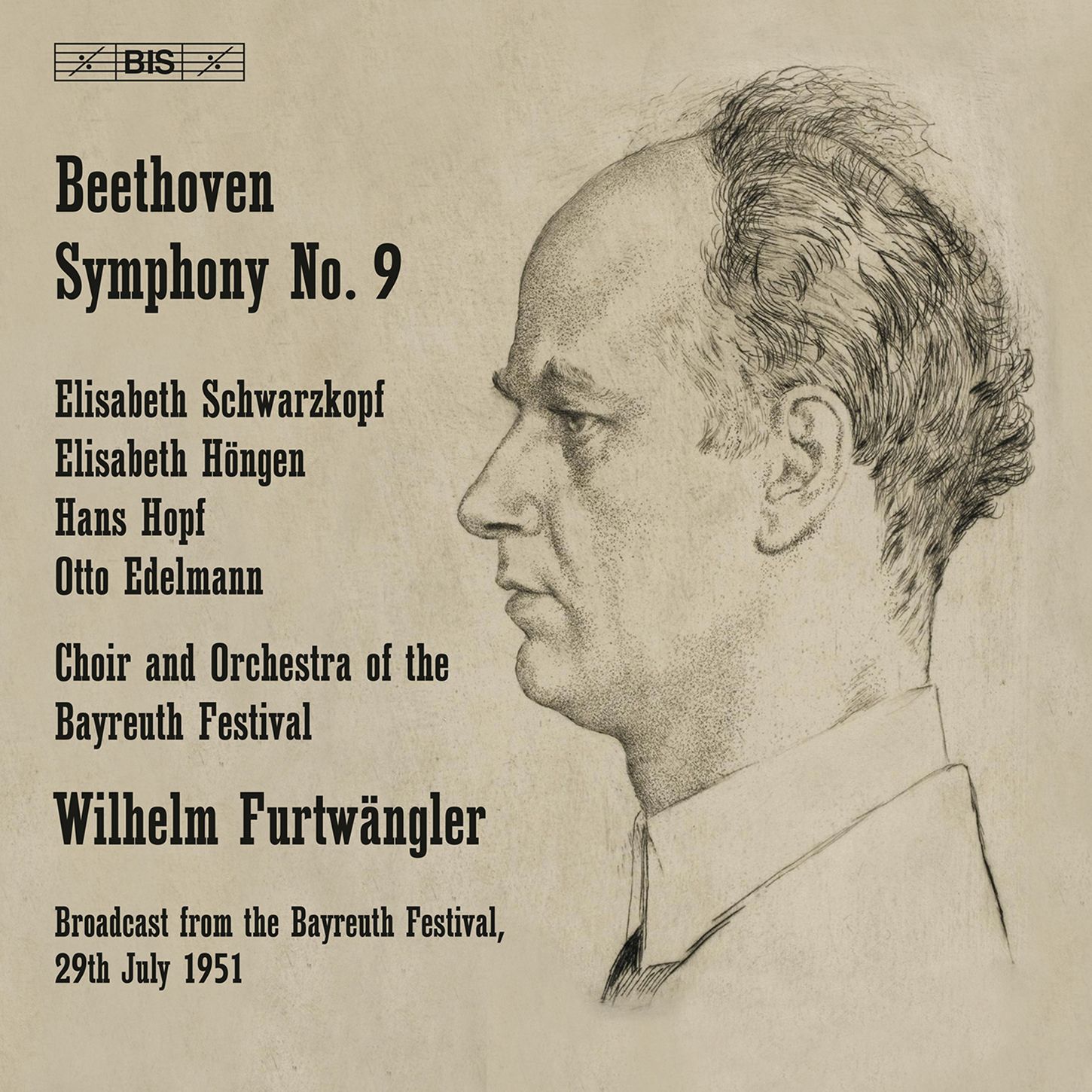Furtwängler conducts Beethoven 9 (Bayreuth)
If this is your first Beethoven Ninth Symmphony - what a way to start!

One of the truly great performances here, for the first Classical Explorer post on Beethoven's Ninth Symphony: Wilhelm Furtwängler conducts the Choir and Orchestra of the Bayreuth Festival on July 29, 1951 with a stellar line-up of soloists: Elisabeth Schwarzkopf, Elisabeth Höngen, Hans Hopf and Otto Edelmann.
The disc represents a rarity for BIS, a historical release, but it is not unique in their catalogue and one wonders what other treasures they have hidden away? This is hardly the first time this performance has been available, but it comes across beautifully here, even though BIS has decided not to change anything abour the sound, gaps between announcement and music, or anything. "In this way we recreate the feeling of sitting in front of an old radio in 1951 ... thus creating an importnat historical document," they say. Using the analogue mono tape as digitised by Swedish Radio, the present disc reproduces the broadcast as it would have been heard by listeners in Sweden. Opening remarks are heard in Swedish, German, French and Englsh; closing remaks come in Swedish and German only.
The performance was broadcast on Bavarian Radio and internationally, including in Sweden. The performance broke a seven-year radio silence from the Bayreuth Festival.
Beethoven's NInth Symphony was a truly ground-breaking work, and Wilhelm Furtwängler was one of its greatest exponents. His conducting is characterised by the most remarkable grasp of structure - he was closely allied to the Austro-Germanic tradition, particularly Beethoven, Brahms and Mahler and, in the opera house, Beethoven's Fidelio and Wagner's mature works.
We hear that large-scale aspect in the first movement, big boned, slower than most might dare today but when the climaxes come, they are shattering. Sadly the BIS transfer is not on YouTube, but we ca at least hear whan Furtwängler does wtih this first movement here:
(and Spotify links for the entire symphony are given below are given below).
The Scherzo has a sort of motoric insistence, almost manic. But - and somewhat ironically given the sound circumstances - we hear more detail here than we might in many modern recordings, Beethoven's use of contrary motion when approaching nodal points, inner detail - it's all there. The tempo for the Trio allows the music to breathe - some might find it slow today, but listen to how, sometimes, the music seems to literally breathe as inhalation and exhalation (around 7'40-50, for example).
The third movement is the most extraordinary pastoral expanse, a meditation at the most profound level that rises to a shattering climax before relaxing back to the arms of Elysium:
The finale is remarkable, truly. The first appearance of the famous "an die Freude" theme is ultra-quiet (you may need to turn up your equipment), the concentration unbreakable. The flowering, with the onset of the bassoon counterpoint, takes us back to the pastoral landscape of the third movement. Otto Edelmann is a strong baritone soloist, superb in his delvery of the big theme; and the recording is massively present when it comes to the Bayreuth Choir. It's possible, I think, to think of a finer, more lusty tenor soloist than Hans Hopf. There's the odd slight drop-out in the finale (in the double fugue), but not enough to dislodge the momentum Furtwángler achieves ... Similarly any mild distortion that accompanies the big choral statements seems as nothing. to what the sound itself is conveying. The point with Furtwängler's readings are that the kernel of the enormity of the finale is held in the very first notes of the first movement - it's as if the piece grows from there, its dénoument crushing, elevating and exhausting all at the same time (and listen to the extended stunned silence after the work finishes ...).
It's a bit of a shame BIS has regurgitated Barry Cooper's notes from 2006 on the Ninth Symphony, clearly wedded to another release - a consideration of Furtwängler's greatess in this piece would have been useful. But none of that detracts from the worth of this release, and if this is your first Beethoven Ninth Symmphony - what a way to start!
